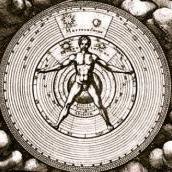Can The Book Of Mormon & The Pearl Of Great Price Help To Restore Priesthood To Women?
-
Recently Browsing 0 members
- No registered users viewing this page.
-
Similar Content
-
Is the Tree of Life composed of our ancestors' and future posterity's love & sacrifices for us, like the family history tree in the Come Follow Me manual lesson about Malachi?
By nuclearfuels,
- family history
- genealogy
- (and 2 more)
- 2 replies
- 185 views
-
- 13 replies
- 758 views
-
Arraign Women Call For Action 1 2
By Bernard Gui,
- Ordain women
- women and the priesthood
- (and 3 more)
- 45 replies
- 3,669 views
-
The Nature And Relationship Of God And Creation 1 2 3 4 32
By stephenpurdy,
- anthropomorphism
- creation
- (and 4 more)
- 795 replies
- 32,416 views
-
- 30 replies
- 3,008 views
-






Recommended Posts